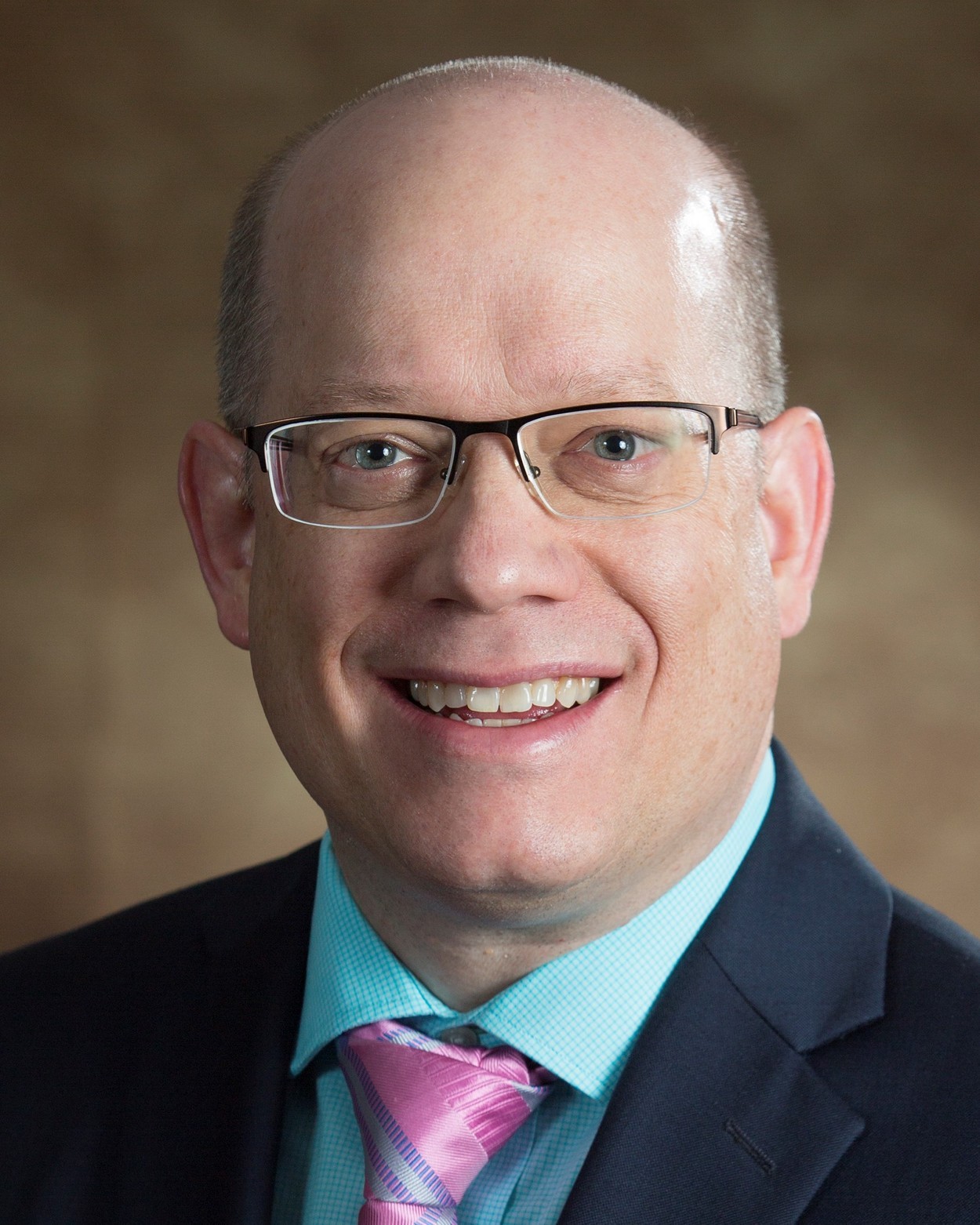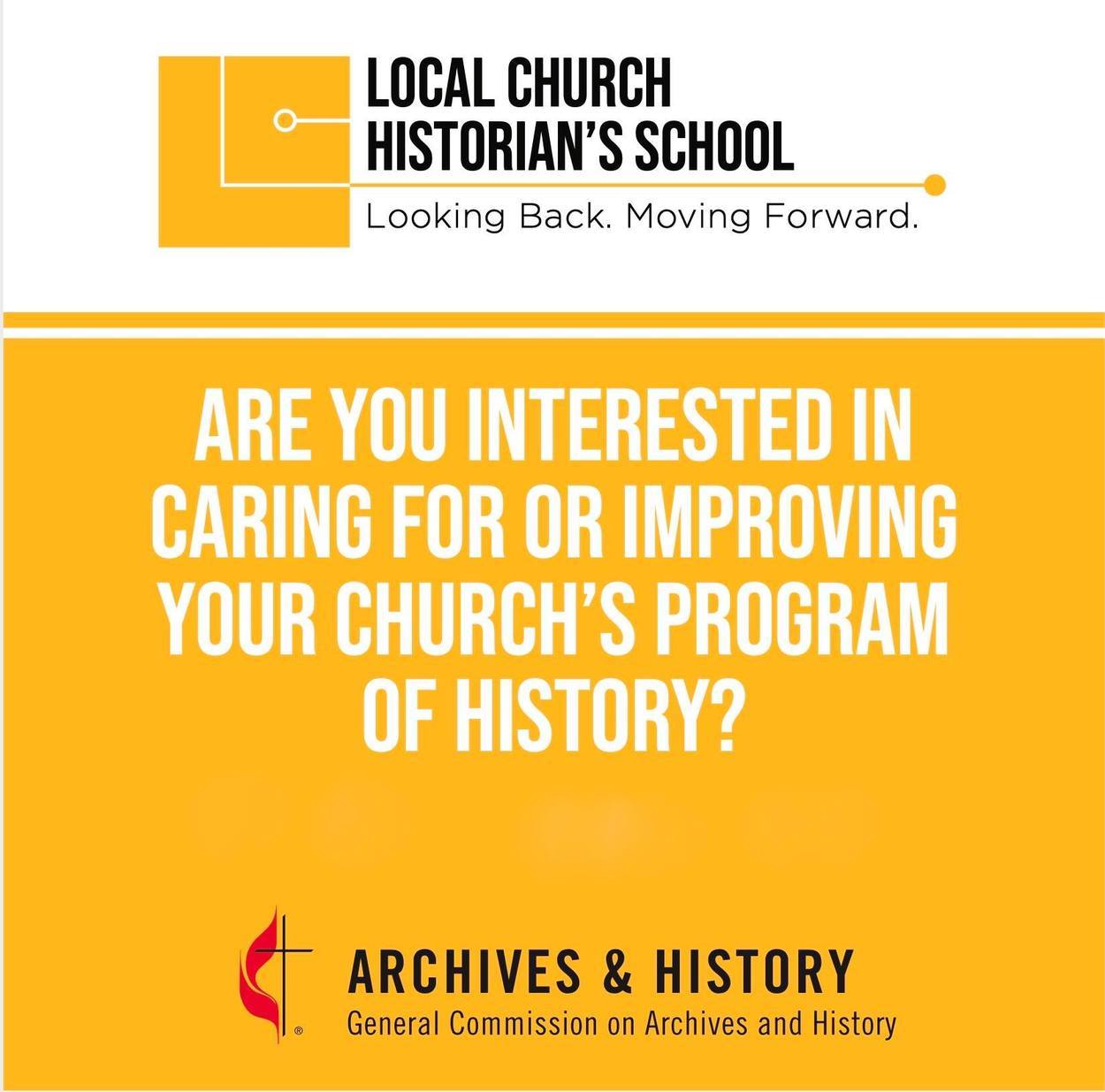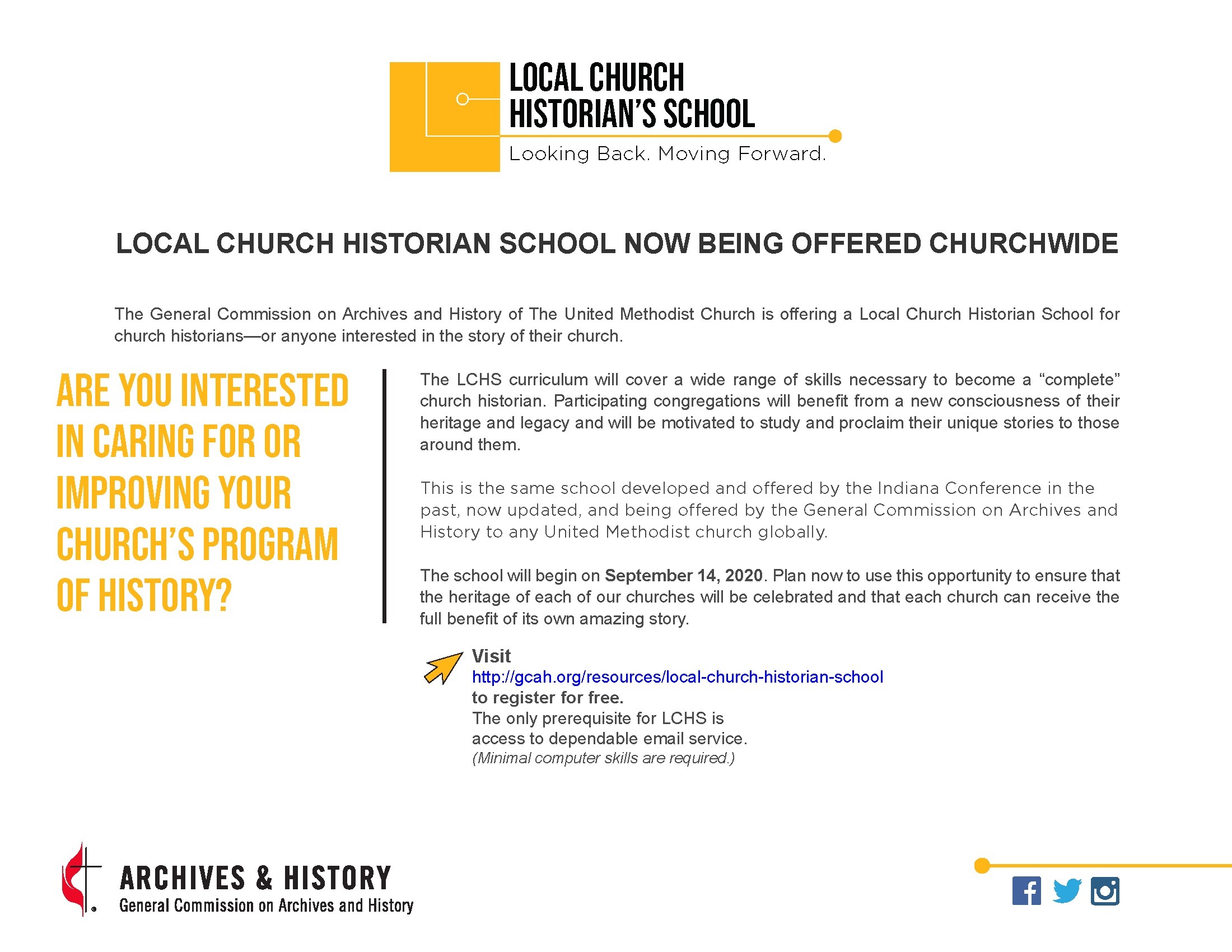
History equips leaders to build a vibrant future

Rev. Duane Coates, who serves on the General Commission of Archives and History for The United Methodist Church, sees the history of The United Methodist Church as a stepping stone to a vibrant church of the future.
"One of the reasons I enjoy the history of the Church is that it gets people in touch with the missionary zeal that sparked the formation of the churches in the past. It tries to answer the question, why was there a United Methodist Church formed at that time? What was the urgency that this met? I think the study of history advances our mission," says Coates.
He says history informs our discipleship and transformation. The Missional Church Consultation Initiative (MCCI) and The Journey Renewal Partnership transformational processes for congregations in the Dakotas Conference call for an investigation of the past to create a future path.
"When I heard participants in the MCCI and Journey Renewal processes were assigned to review their history, I thought that was a genius move. It helps you examine when and why the church grew at one time? What were the needs being met? It equips the churches to do that transformational work," says Coates.
Coates says it is vital for every church leader to find the documents that tell the founding of your church. Things like minutes, the records of attendance, the baptisms.
When he moved to serve Hettinger UMC in North Dakota, he did just that. He found out that, "The United Methodist Church in Hettinger, North Dakota, was the first church building to be established in the community. It was established in 1907; there wasn't a school or a courthouse. This was the first year of the community, there were not many things, but there was a church. That was important to the people. They were making disciples. A true example of missionary zeal."
The Local Church Historian School equips local church leaders to tell the story and discover the church's mission. It happens digitally through e-mail. There are 12 steps or chapters to the School. At the end of each step, there is a series of exercises. Participants complete the activities and send their responses to a class monitor via e-mail. Learners are expected to complete 80% of the work to receive a certificate of completion.
"There is a lot of stuff to do. We do not imagine that people are going to complete the course in 12 weeks. They can move at their own pace on their own timeframe," says Rev. Coates.
In started in 2015, when the Indiana Conference held the first Local Church Historian School for members within the bounds of the Indiana Conference. In 2017, the Indiana Conference invited people from throughout the United States and two participants from central conferences. To date, there have been 504 participants. Students have come from all five jurisdictions and one or two countries outside the United States. Students represent 418 United Methodist churches in 31 annual conferences and one Presbyterian Church.

The 2020 Local Church Historian School will take place across the denomination. The course will be scaled up for each of the five jurisdictions in the United States. The General Commission on Archives and History hired a director and selected a monitor for each of the jurisdictions. Participants will check in with their monitor at least two times during the course. A closed Facebook page will also be available for participants to interact with each other.
Coates says, "We don't know what the interaction will look like. It might be a Zoom meeting or something else. That will be up to the monitors and the director. It is not a data dump or a blog. The reason the author called it a school is because of the interaction."
The author, Dr. Richard Stowe, born and raised in Indiana, is a retired educator. He has written the curriculum to engage participants as if they are sitting in his classroom.
Rev. Duane Coates, a Dakotas Conference elder who serves at Hettinger UMC in North Dakota, is the chair of the North Central Jurisdiction Committee on Archives and History. He is also a member of the General Commission of Archives and History for The United Methodist Church. Rev. Coates learned about the Local Church Historian School at meetings with the NCJ committee.
"I thought it was a good idea. It came before the General Commission. As the representative from the North Central Jurisdiction, I felt I needed to be a champion for Richard's request to scale up the effort," he says.
As a member of the History and Interpretation Committee, it fell to Coates to lead a task force for the development of the School. An editorial committee was formed with several people from diverse backgrounds to read over the content and determine if the content fit the cannon of the industry, and check for implicit bias.
Coates says, "People reviewed the content and said, 'no, there is no implicit bias.' The content stands up, and it is quality content."

Stowe granted copyright permission to the General Commission of Archives and History to scale up and disseminate the content without invading the integrity of the work. Another group of editors was assigned to read through the material and begin to think about how it could be improved for a wider audience and appeal to AP style. Rev. Tom Slack, a retired communicator and elder from the East Ohio Conference, and Coates read through the 69,000 words.
"We had to edit the work without showing any tracks. We needed to hear the author's voice," says Rev. Coates. "We had about 400 edits we ran by Richard, all done by e-mail. We got the content to the place we thought it would stand."
A steering committee was formed to determine the next steps of marketing, methods of dissemination, and selecting the director and monitors. The logistics needed to be put in place.
Coates read through the content one last time, and preparations were made to launch the marketing and registration for the School at General Conference 2020. The postponement of the General Conference 2020 has altered plans for the startup.
A director was recruited and hired. Monitors are in place. Jay Rollins, the communicator for the General Commission of Archives and History, is managing the communication and marketing for the Local Church Historian School to begin in September of 2020.
"I would like to think that we are equipping people to rediscover the church's mission and learn from our past," says Rev. Coates.
Coates' and Stowe's dream is to launch the 2021 Local Church Historian School in several languages for all United Methodists across the globe. Coates says, “History is a tool for leadership development. We learn from how people adapted in the past. How can we learn from that?”
Learn more about the Loacl Church Historian's School here and register.